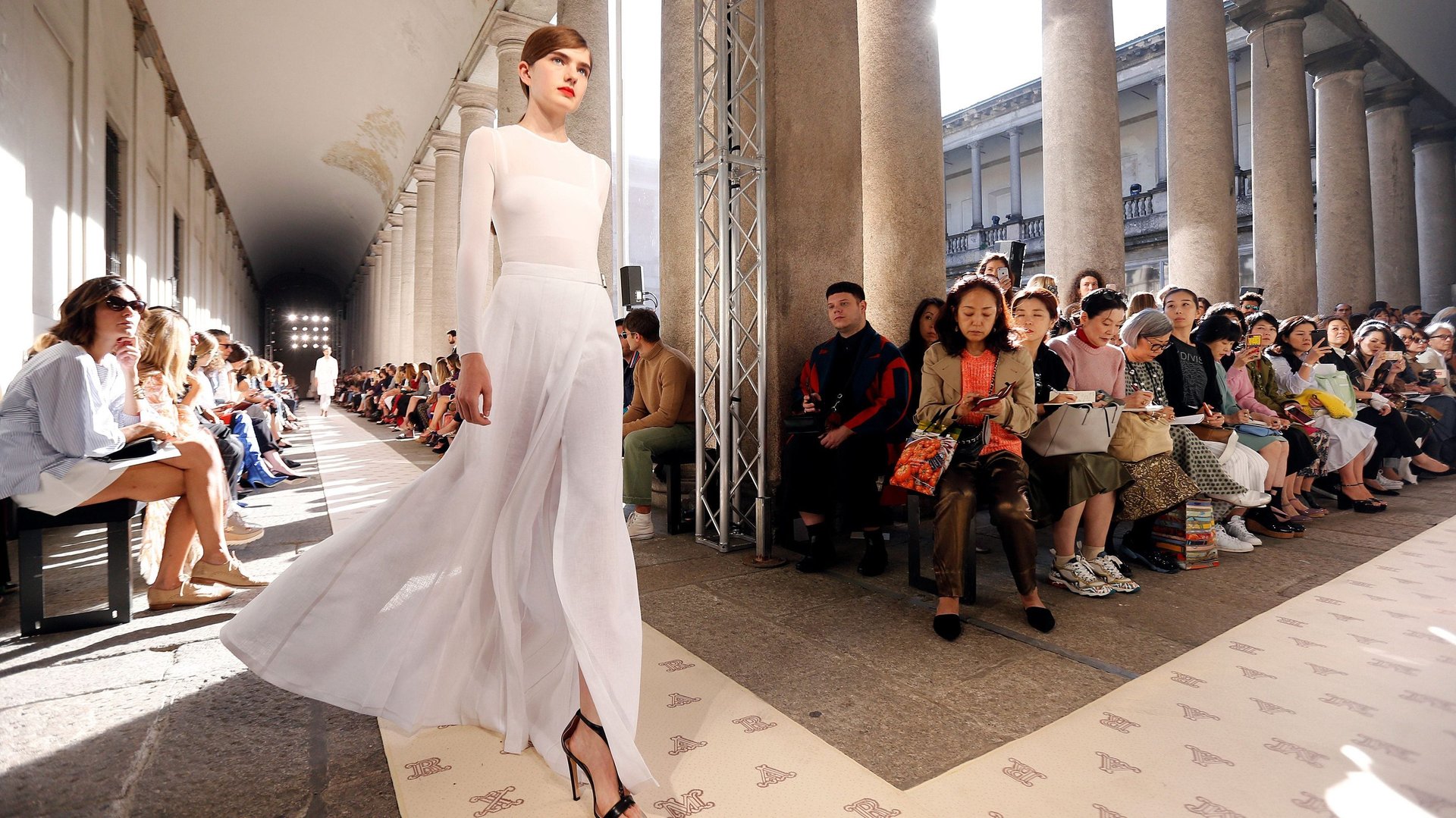Italian workers are earning near sweatshop wages to make luxury clothes in their homes
A “Made in Italy” clothing label suggests peak craftsmanship to shoppers around the world, helping luxury brands charge a premium for anything bearing the tag. But an investigation by the New York Times (paywall) reveals that some Italian workers making these items could be doing so in home workshops for staggeringly low pay.


A “Made in Italy” clothing label suggests peak craftsmanship to shoppers around the world, helping luxury brands charge a premium for anything bearing the tag. But an investigation by the New York Times (paywall) reveals that some Italian workers making these items could be doing so in home workshops for staggeringly low pay.
One woman the Times spoke with was in the process of stitching a wool coat for the label MaxMara that could cost well over €1,000 (about $1,175) in a store. She earned €1 for every meter of fabric she finishes from the factory that hired her, which also produces outerwear for labels such as Louis Vuitton and Fendi. For finishing an entire coat, she might earn up to €24, and tries to complete two coats per day if she can.
She and another woman, who used to earn €1.50 to €2 per hour embroidering wedding dresses, each knew of more than a dozen others who did such work for local factories, and the Times collected evidence of about 60 women in the Puglia region alone. In another instance, an investigation by Italian paper Il Tacco D’Italia found footwear factories hiring women to sew shoe uppers in their homes for €.70 to €.90 per pair, so that in 12 hours they might earn €7 to €9.
Homeworkers are generally informal workers with no contract who do work outside a factory, though it’s typically a factory that hires them, when they need labor-intensive piece work, like attaching sequins or sewing buttonholes, done cheap. They’re part of fashion’s supply chain in low-wage Asian countries, though little spoken of even then. “I don’t think any company would openly acknowledge or want this to be the case, because if it’s outside of the factory, they can’t control it,” Edward Hertzman, founder and president of Sourcing Journal, told Quartz in 2015.
It’s rarer still to hear of them in the supply chains of luxury brands producing in a European country, where it’s assumed workers are fairly paid, especially those stitching high-end garments. Homeworkers tend to earn far less, though, than someone doing the same work in a factory. While Italy doesn’t have a national minimum wage, according to the Times many unions and consulting firms would consider €5 to €7 per hour to be appropriate, well above the earnings of the homeworkers it described.
Beyond the low pay, these workers generally don’t have insurance, or any way to address issues like being paid late, or not at all. Often they’re women, who may need the work to survive while being able to stay home and care for children.
The brands that homeworkers produce for may not always know they exist. Fashion companies contract factories to produce their clothes, or go through a middleman who negotiates with the factories on their behalf. The factory farms out the work to homeworkers.
A spokesperson for MaxMara told the Times it was unaware of any of its suppliers using homeworkers. “MaxMara considers an ethical supply chain a key component of the company’s core values reflected in our business practice,” it said in a statement. Quartz reached out to the company directly and will update this story with any reply. LVMH declined to comment.
But Deborah Lucchetti, who works with the Italian branch of Clean Clothes Campaign, which advocates for fair treatment of workers, told the Times that it’s well-known that factories hire homeworkers, and “some brands must know they might be complicit.”
It casts more questions on what consumers can expect when they buy fashion with a “Made in Italy” label. It’s also common knowledge (paywall) at this stage that Italian factories may be staffed by low-paid Chinese immigrants.